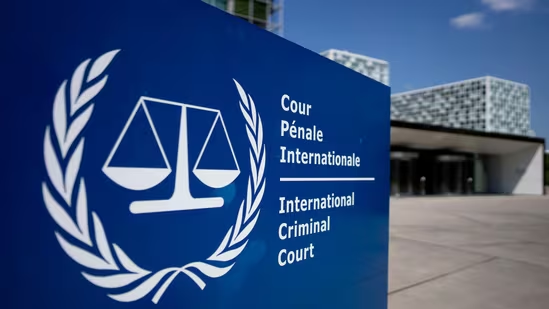International Criminal Court Condemns U.S. Sanctions
The International Criminal Court (ICC) has strongly condemned the recent sanctions imposed by U.S. President Donald Trump. The court has described the measures as an attempt to undermine its judicial independence and obstruct its efforts to hold perpetrators of war crimes accountable.
Trump’s Sanctions Target ICC Officials
President Trump’s executive order imposes financial sanctions and travel bans on ICC officials, preventing them from conducting investigations into alleged U.S. war crimes. The administration claims that the ICC is acting politically by targeting the United States and its allies.
ICC Calls for Global Unity Against U.S. Pressure
In response to the sanctions, the ICC has called on the international community to stand against attempts to weaken its judicial authority. The court emphasized that its mandate is to uphold justice and prosecute war crimes, regardless of political influence.
U.S. Accusations Against the ICC
The Trump administration has accused the ICC of unfairly targeting the U.S. and Israel while allegedly ignoring human rights violations committed by other nations. Officials argue that American military personnel should not be subjected to international prosecution.
Criticism from Human Rights Organizations
Leading human rights organizations, including Amnesty International and Human Rights Watch, have criticized the U.S. for its actions against the ICC. They argue that the sanctions undermine global efforts to ensure accountability for crimes against humanity.
International Leaders Defend the ICC
World leaders, particularly in Europe, have expressed support for the ICC and denounced the U.S. sanctions. The European Union and several UN member states have reaffirmed their commitment to international justice and the court’s independence.
Legal Experts Warn of a Dangerous Precedent
Legal scholars warn that Trump’s move sets a dangerous precedent, signaling that powerful nations can intimidate international institutions when investigations do not align with their interests. Some experts fear that this could weaken global efforts to combat war crimes.
ICC Investigations Into U.S. and Israeli Actions
The ICC has been investigating alleged human rights violations and war crimes committed by U.S. troops in Afghanistan and Israeli military forces in Palestinian territories. The sanctions are widely seen as an effort to obstruct these ongoing probes.
Impact on the ICC’s Operations
The sanctions could disrupt the ICC’s ability to function effectively, as they restrict financial transactions and international travel for its officials. Critics argue that this tactic is meant to pressure the court into dropping investigations.
The Role of the United Nations in the Dispute
The United Nations has called for the U.S. to reconsider its actions, emphasizing the importance of upholding international legal institutions. UN Secretary-General António Guterres expressed concerns about the potential weakening of global justice mechanisms.
Potential Diplomatic Fallout
Trump’s sanctions have further strained relations between the U.S. and its European allies. Many EU nations view the move as an attack on international law and a rejection of cooperative global governance.
Calls for the Biden Administration to Reverse the Sanctions
With the upcoming change in U.S. leadership, human rights advocates and foreign policy experts are urging President-elect Joe Biden to reverse the sanctions. They argue that re-engaging with the ICC is essential to restoring America’s commitment to international justice.
Public Reaction and Media Coverage
The controversy has sparked global media coverage, with many outlets condemning Trump’s decision. Public opinion remains divided, with some supporting the ICC’s role in global justice while others argue for national sovereignty over legal matters.
The Future of U.S.-ICC Relations
Despite the current tensions, the long-term relationship between the U.S. and the ICC remains uncertain. While the Trump administration has taken a hardline stance, future U.S. administrations may seek to rebuild diplomatic ties with the court.
Conclusion: A Critical Test for International Justice
The ICC’s condemnation of U.S. sanctions highlights the ongoing struggle between international accountability and national sovereignty. As the court continues its work, the global community must decide whether to stand firm in support of justice or yield to political pressure.




































